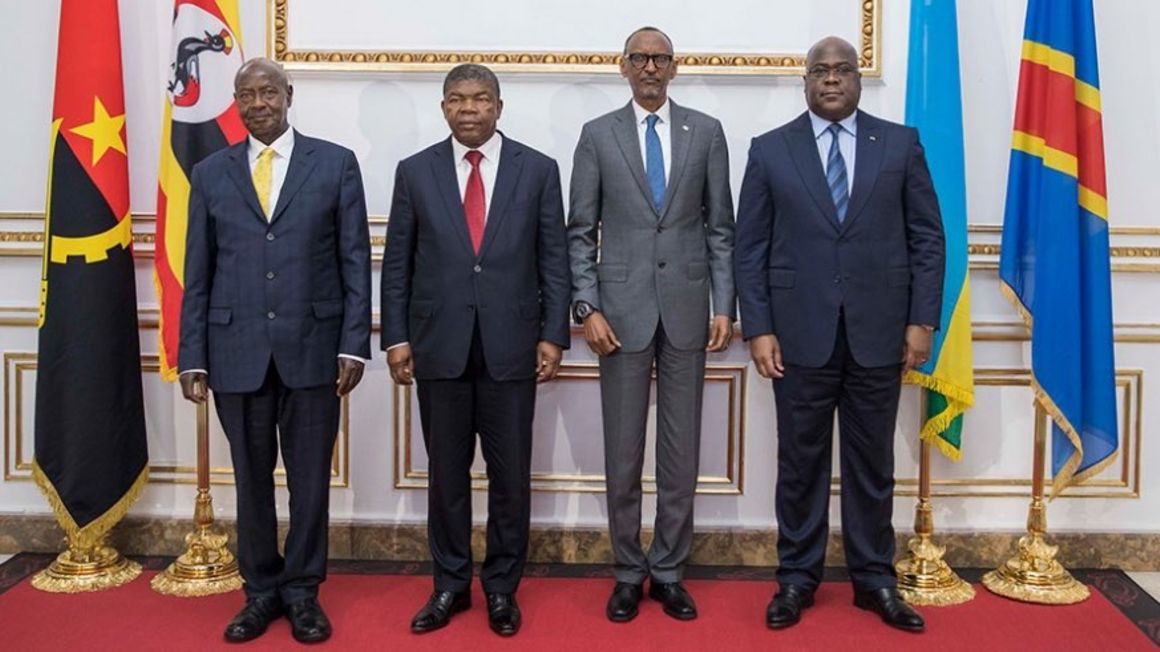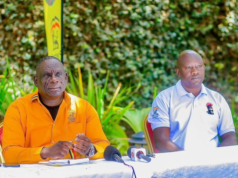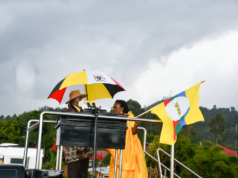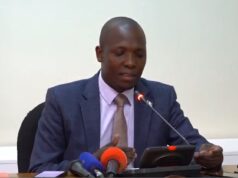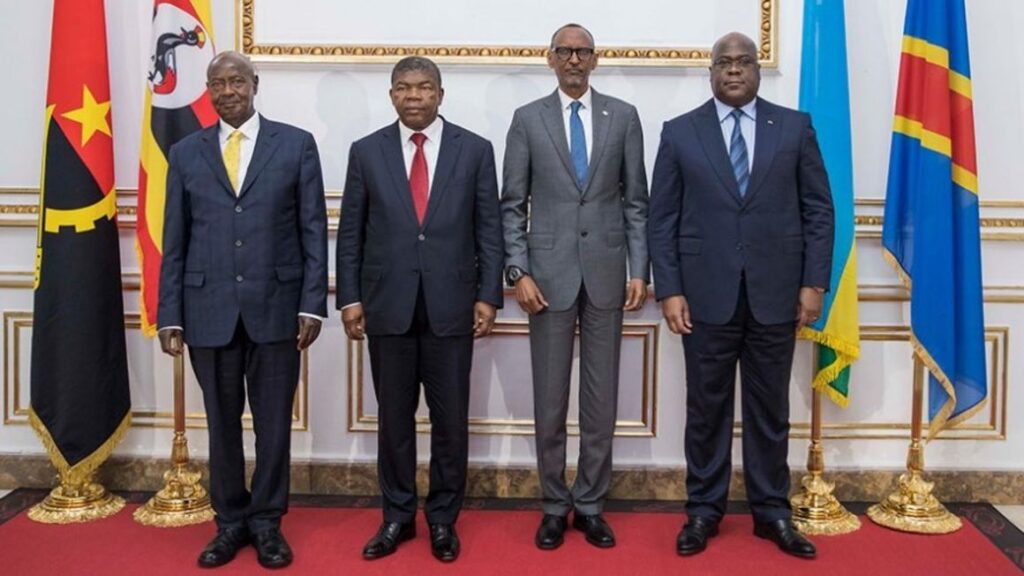
From left: President Museveni, João Lourenço of Angola, Paul Kagame of Rwanda and President Félix Tshisekedi of the Democratic Republic of Congo(Photo/Courtesy)
President Museveni Wednesday joined counterparts, from Rwanda’s Paul Kagame, DR Congo’s Felix Tshisekedi and Angola’s Joao Lourenço for a virtual mini-summit, which largely discussed security issues in the region, usually complicated by tensions in the eastern Congo.
The summit called by President Tshisekedi had been initially scheduled to take place in September in the DR Congo city of Goma but the plan fell out due the Covid-19 pandemic restrictions. Burundi had been invited to the discussions but opted out citing lack of preparedness.
According to a statement issued by State House, the principals “reviewed the security situation in the Great Lakes Sub-region, and recalled the Addis Ababa Framework Agreement of February 2013, which affirms the security concerns of the countries of the sub-region-Great Lakes region. In this regard, they reaffirmed their willingness to combine their efforts to eradicate the negative forces and armed groups operating in the Great Lakes region.”
The Addis Ababa Framework Agreement was signed seven years ago by DR Congo, Uganda, South Africa, Burundi, Angola, Central African Republic, South Sudan, Congo-Brazaville, Tanzania, and Rwanda, as part of the wider efforts to bring peace back in the restive eastern Congo following the flashing out of the M23 rebels.
The signatory countries committed to keep out internal affairs of DR Congo, and not to tolerate or offer support to armed groups known to operate in the country.
This was after UN report in 2012 accused Uganda and Rwanda of helping the M23 militias.
Since then, eastern Congo has been relatively stable but with isolated cases of fighting, pillaging of villages, and other atrocities by other rebel groups.
Agreements
The Heads of State agreed to set up a cross-border plan to strengthen surveillance and control measures in response to Covid-19 and other pathologies with epidemic potential between the four countries, while respecting national, regional and international laws responsible for.


